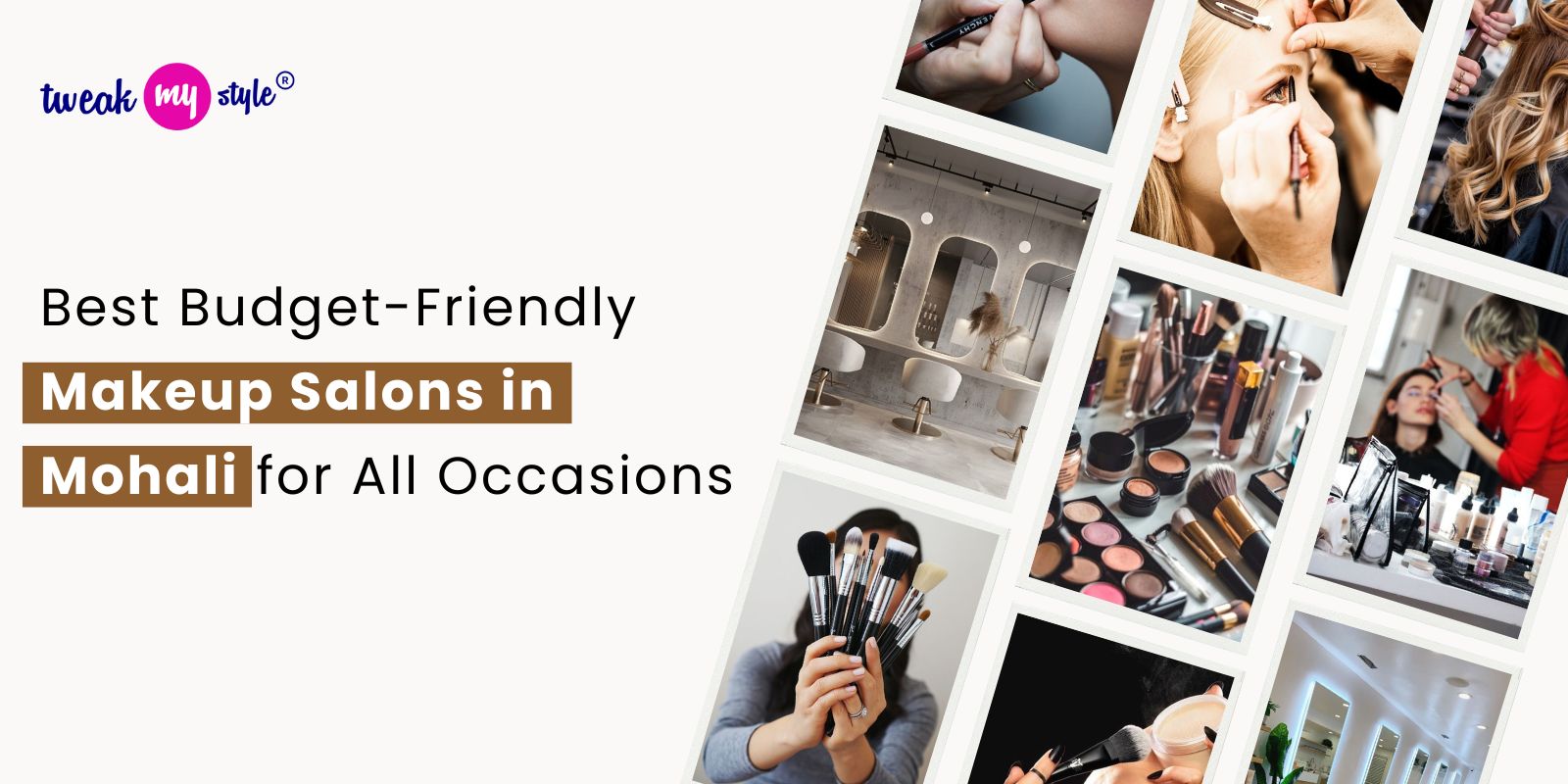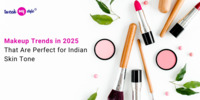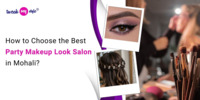- Jun 16, 2025
- Salons & Services
- 1509
Share this post on:

Mohali, a vibrant city known for its modern infrastructure and bustling atmosphere, is also a hub for beauty and glamour. While high-end salons abound, finding exceptional makeup artistry without breaking the bank can feel like a challenge. Fear not! This guide explores the best budget-friendly makeup salons in Mohali, perfect for everything from a subtle everyday look to a show-stopping wedding transformation. We're covering price ranges, salon profiles, and expert tips to help you find your perfect beauty match.
Why Budget-Friendly Doesn’t Mean Budget-Compromising
The term "budget-friendly" doesn't equate to sacrificing quality. Many talented makeup artists in Mohali offer fantastic services at reasonable prices. These salons often cater to a wider audience and prioritize value, offering competitive rates without compromising on hygiene, product quality, or skill. You can absolutely achieve stunning looks without depleting your savings.
Understanding Mohali's Makeup Price Landscape
Before we dive into salon recommendations, let’s understand the general price ranges you can expect in Mohali:
- Basic Everyday Makeup: ₹800 - ₹1500 (Focus on natural enhancement, foundation, concealer, light contouring, mascara, lip tint)
- Party Makeup: ₹1500 - ₹3000 (More intense eye looks, bolder lip colors, more contouring and highlighting)
- Engagement/Pre-Wedding Makeup (Trial): ₹2000 - ₹4000 (Includes consultation and a basic application, often with a focus on skincare)
- Wedding Makeup (Bride): ₹5000 - ₹12,000+ (Multiple applications, hair styling, elaborate looks, sometimes includes bridal accessories). Note: Prices can significantly increase based on complexity, artist experience, and product usage.
- Wedding Makeup (Guests): ₹3000 - ₹6000 (Depending on the desired look and salon's pricing)
These are estimates; it’s always best to confirm prices with the salon directly.
Top Budget-Friendly Makeup Salons in Mohali (Sorted by General Reputation & Value)
Here’s a curated list of salons that consistently receive positive feedback for their affordability and quality:
1. Glamour Studio (Sector 17): The All-Rounder
- Why it's great: Glamour Studio is a popular choice for its consistent quality and reasonable pricing. They have a team of well-trained makeup artists capable of handling various looks.
- Price Range: Everyday Makeup: ₹1000-₹1500, Party Makeup: ₹1800-₹2800, Wedding Trial: ₹2500-₹3500, Bride: ₹6000-₹9000.
- Specialty: They are particularly praised for their natural-looking everyday makeup and their bridal trials.
- Address: Sector 17, Mohali
2. Beauty By Nikita (Phase 9): Bridal Expertise
- Why it's great: Nikita specializes in bridal makeup and has built a strong reputation for creating stunning, long-lasting looks. She also offers excellent pre-wedding skincare consultations.
- Price Range: Everyday: ₹1200-₹1800, Party: ₹2000-₹3200, Bridal Trial: ₹3000-₹4500, Bride: ₹7000-₹11,000.
- Specialty: Bridal makeup, HD makeup, airbrush makeup (available at an extra charge).
- Address: Phase 9, Mohali
3. The Beauty Hub (Sector 11): Modern & Trendy Looks
- Why it's great: The Beauty Hub keeps up with the latest makeup trends and offers a modern aesthetic. They’re a good option for those seeking a more contemporary look.
- Price Range: Everyday: ₹900-₹1600, Party: ₹1700-₹2900, Bridal Trial: ₹2200-₹3800, Bride: ₹5500-₹9000.
- Specialty: Contouring & highlighting, bold eye looks, trendy lip colors.
- Address: Sector 11, Mohali
4. Makeover Studio (Mullanpur): Excellent for Guest Looks
- Why it's great: Situated in Mullanpur, this studio gets rave reviews for its attentive service and affordable packages especially for wedding guests.
- Price Range: Everyday: ₹800-₹1400, Party: ₹1600-₹2700, Guest Bride: ₹3000 - ₹5500, Bride: ₹6000-₹10,000.
- Specialty: Great value for money, consistent quality, good for large groups.
- Address: Mullanpur, Mohali
5. Shine & Glam Studio (Phase 7): Beginner-Friendly & Welcoming
- Why it's great: This salon creates a comfortable and welcoming environment, making it ideal for those who are new to professional makeup.
- Price Range: Everyday: ₹850 - ₹1550, Party: ₹1650 - ₹2750, Bridal Trial: ₹2300 - ₹3600, Bride: ₹5000 – ₹8500.
- Specialty: Skincare-focused makeup application, gentle products, friendly and patient artists.
- Address: Phase 7, Mohali
Tips for Choosing the Right Salon & Getting the Best Value
- Read Reviews: Don's skip this! Look beyond star ratings and read what people actually say about the salon's service, hygiene, and artist skills.
- Check Portfolios: Most salons have Instagram pages or Facebook pages showcasing their work. Look for styles you like.
- Schedule a Trial: For significant events like weddings or engagements, always schedule a trial. This lets you communicate your vision, test products, and assess the artist’s skills.
- Communicate Clearly: Be specific about your desired look. Bring inspiration photos! Let the artist know about any skin sensitivities or allergies.
- Ask About Products: If you have a preference for specific brands (e.g., hypoallergenic or cruelty-free), inquire whether the salon uses them.
- Inquire About Packages: Some salons offer packages that include makeup and hair styling, which can often be more cost-effective.
- Book in Advance: Popular salons, especially those known for affordability, tend to book up quickly.
Conclusion
Finding budget-friendly makeup salon in Mohali doesn’t mean compromising on quality or artistry. By doing a little research and following these tips, you can achieve a stunning look for any occasion without breaking the bank. Embrace your inner radiance and get ready to shine!










